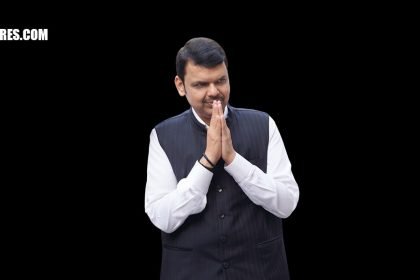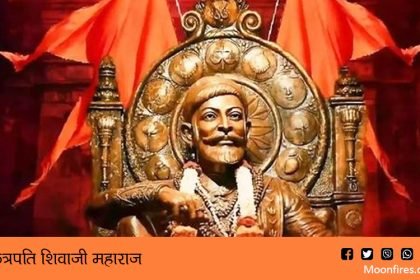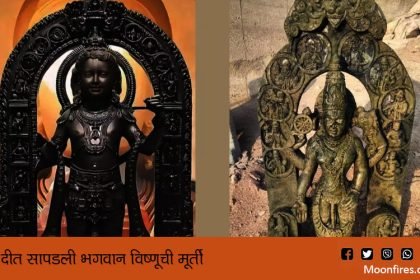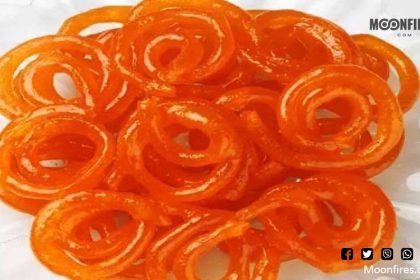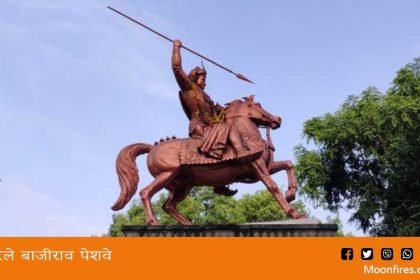Vasudev Balwant Phadke, In the mid-1870s a light complexioned and handsomely built man in his 30s could be seen running through the streets of Pune with a thali (plate) and ladle in his hands. Striking the thali with the ladle, he would announce his forthcoming speaking engagement.
“All should come to Shaniwar-wada grounds this evening”, he would call. “Our country must be free. The Englishmen must be driven out. The ways and means of doing it, I shall explain in my speech”.
The person was Vasudev Balwant Phadke, an employee of the Military Finance Office in Pune. Born on November 4, 1845 in Shirdon (dist. Thane), his family hailed from Kelshi, a hamlet in Konkan. In 1862, he was amongst the early graduates of Bombay University.
He worked in various government institutions like Grant Medical College and Commissariat Examiner’s Office at Mumbai before coming to Pune in 1865. He was a family man. It was highly unlikely that such a person would propagate disaffection towards the government. But he was actually proclaiming it in the broad daylight.
He was apparently the only person in those days calling for the ouster of the British. The nascent public life in western India exemplified by Bombay Presidency Association and Poona Sarvajanik Sabha etc was confined only to constitutional politics.
His speeches at Pune created waves. People thronged to listen to him. He utilized his Sundays to Panvel, Palaspe, Tasgaon and Narsobachi Wadi to address the masses. He was apparently the first Indian to tour for political propaganda. His speeches, however, did not produce desired result.
Unlike what he expected, the people did not rise in rebellion. Thereafter he abandoned giving public speeches. He began to contemplate secret organization. He frequented akhada, or indigenous gymnasium, in order to train his physique.
Pune was dotted with locales associated with Maratha history. Torna or Prachandagad, one of the first forts to be captured by Shivaji was not situated far from the city. Phadke started a physical training camp at Gultekdi Hill near Pune. A well-structured revolutionary organization was Phadke’s priority. He created four groups. The first group organized meetings of school boys without the knowledge of their teachers at secret locations outside the school.
A spokesman of Phadke’s organization preached the message of independence amongst the students. The second group consisted of roving bands that went round the city in the morning singing patriotic songs. The third group, an evening choir, went round singing songs satirizing the British rule and bemoaning the plight of India.
The fourth, or the core, group consisted of members plotting revolutionary activities. Phadke evolved a new method of public communication. He concentrated on emotional and spiritual connect to rouse the innate patriotism of the people.
Until this point Phadke proved himself a pioneer. He developed a public culture of patriotism long before Tilak, Lala Lajpat Rai and Bipin Chandra Pal. Then the great famine struck Maharashtra in 1876-77. He travelled across the affected districts in disguise to see the devastation for himself. He blamed the ordeal of people on flawed British policies. He also decided to take a leap of faith into revolution.
There also he proved a pioneer- the father of Indian revolution. At the dead of the night on February 20, 1879 Phadke and his colleagues like Vishnu Gadre, Gopal Sathe, Ganesh Deodhar and Gopal Hari Karve declared the birth of their 200-strong militia outside Loni, eight miles north of Pune.

This was possibly the first revolutionary army of India. Phadke acknowledged that banditry would be a necessary evil to sustain his rebellion. He said their time for leaving homes to join the struggle had come. “We shall secure many more weapons and much more money after our first raid. We shall fight against the police and the Government”, he said on the occasion.
All the while he had been living dangerously. To mobilize money and weapons, Phadke’s party undertook some daring looting operations in the vicinity of Mumbai and later in Konkan region. It sent chill down the spine of the British. Phadke’s name inspired awe in the entire region.
In May, 1879 Phadke issued his famous proclamation denouncing the exploitative economic policies of the government and warning them. Copies of the proclamation were posted to the Governor, the Collectors and other Government officers. It created sensation throughout India. His rebellion arguably had indirectly affected the plot of Bankim Chandra Chattopadhyay’s novel Anandamath (1882).
The Times, London on June 3, 1879 carried a long editorial on the Phadke phenomenon. It advised government to revise its land assessment policy to contain agrarian unrest. The British, however, were tightening the grip. Phadke’s short lived career was almost over.
He fled Maharashtra to go to the temple of Shree Shaila Mallikarjuna, a Jyotirlinga in Kurnool district of Andhra Pradesh. In the second part of his autobiography finished on April 25, 1879 he sought forgiveness from all Indians for his failure. He wanted to sacrifice his life at the holy site, once visited by his icon viz. Chhattrapati Shivaji but was prevented by the priest.
Vasudev Balwant Phadke tried to reorganize a fresh revolution with Rohilla, Sikhs and Arabs in Nizam’s forces. He sent his emissaries to different parts of India. But his plans were not destined to succeed. It ended with his arrest in a village of Devar Navadgi, on July 20, 1879.
The trial in Pune court awarded him transportation for life sentence. The people who gathered on the occasion raised deafening cheers for him with agony and pride. In prison he was detected with tuberculosis, which in those days had no cure. Phadke preferred death to a lifelong sentence. What else could be expected of a freedom fighter? The death came on February 17, 1883- at the age of 37. It was later that year Veer Savarkar was born in Maharashtra.
Phadke’s revolutionary career might have been short. But he paved the way for organized armed movement for freedom of India.
###
PRIYADARSHI DUTTA
*The writer is an independent researcher and commentator. Views expressed in the Article are personal.



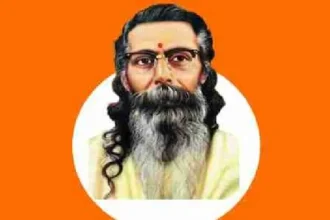
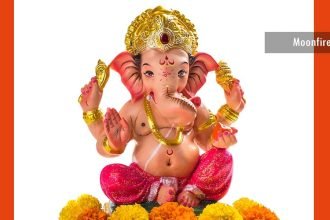
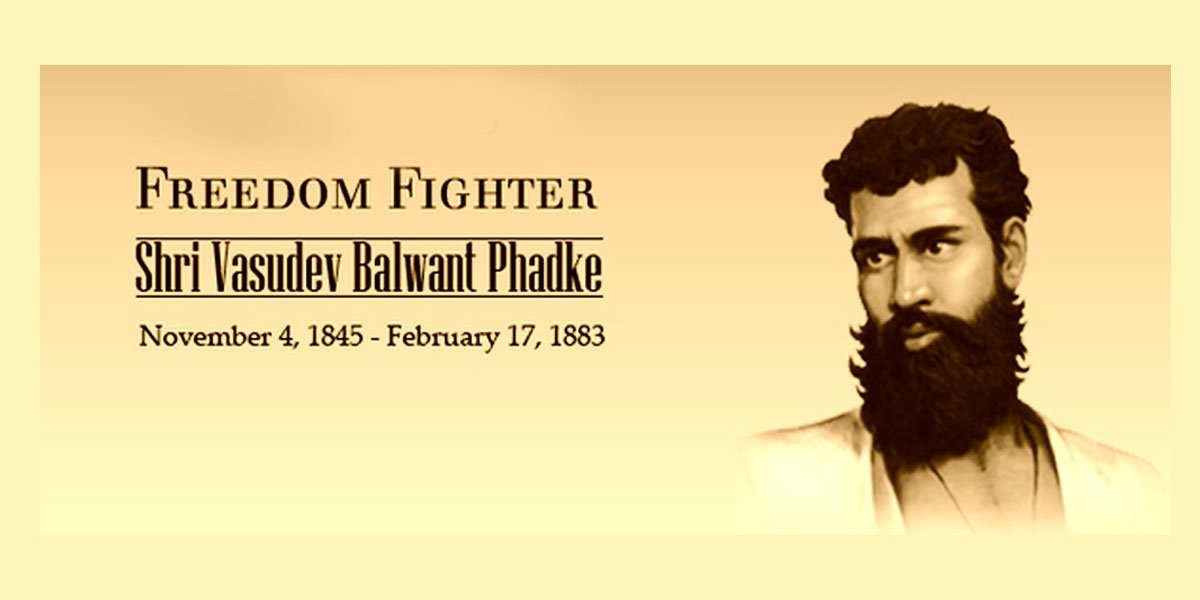
 If you want to use your preferred UPI app, our UPI ID is raj0nly@UPI (you can also scan the QR Code below to make a payment to this ID.
If you want to use your preferred UPI app, our UPI ID is raj0nly@UPI (you can also scan the QR Code below to make a payment to this ID.